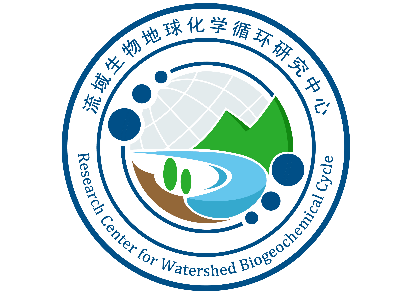
The growing human population and energy consumption together with land use change are increasingly changing the surface-earth system, especially the cycles of water, carbon, and nitrogen in the terrestrial and aquatic eco-systems. Meanwhile, the climate changes, such as rising atmosphere CO2 concentration and temperature, is accelerating the change in water cycle and biogeochemical processes, which significantly determine the fundamental functions and health of the surface-earth system. Therefore, studying the biogeochemical processes of carbon and nitrogen as well as its coupling with water cycle is pivotal to understand their effects and feedback on the geo- and eco- systems of the surface-earth, and to better cope with the global change in pursuit of the sustainable development.
Watershed, a complex of hydrosphere, lithosphere, pedosphere, atmosphere and biosphere, has long been recognized as a key geographical unit of the surface-earth system. The interaction and coupling of hydrologic and biogeochemical processes in a watershed significantly affect the quality of soil and water as well as the function and health of the watershed-scale and larger-scale ecosystems. Recently, the intensive human activities and accelerating climate change pose new challenges to remain the normal function and services of ecosystem. Therefore, studying the biogeochemical processes at watershed scale is pivotal to understand and predict the impact and feedback of ecosystem function and services on global change, and to facilitate global sustainable development.
A watershed is a natural laboratory for investigating the interactions between chemical, physical and biological processes of essential elements such as carbon and nitrogen. River systems are not only the channels of terrestrial materials to the ocean, but also are active reactors for biogeochemical reaction. The biogeochemical information extracted from the freshwater in a watershed is not only useful for converging sources and flowpaths, but also an indicator for the watershed ecological function. However, the assessment and prediction of the watershed function remain highly uncertain, and further investigations on watershed biogeochemistry are urgent to promote the development of surface-earth system science.
Through integrating the multidisciplinary theories of surface earth system science, the Research Center for Watershed Biogeochemical Cycles (RCWBC) is devoting to improve the understanding of the geochemical laws and processes that shape the surface-earth system, which can offer solutions to energy production, agriculture, water quality and other societal benefits to our energy and environmental missions. The RCWBC brings together researchers from the surface-earth system science community, and promote joint, comprehensive and interdisciplinary researches. The RCWBC aims to cultivate young talents in the field of environmental and ecological protection, by training students on field observation, lab experiments, as well as model simulations.